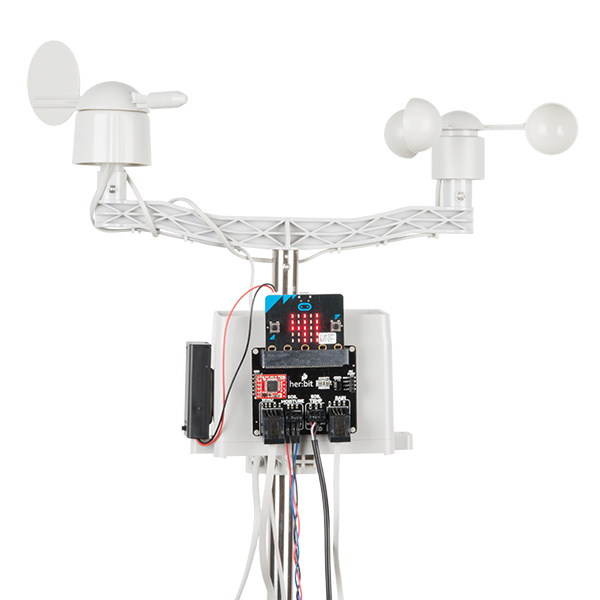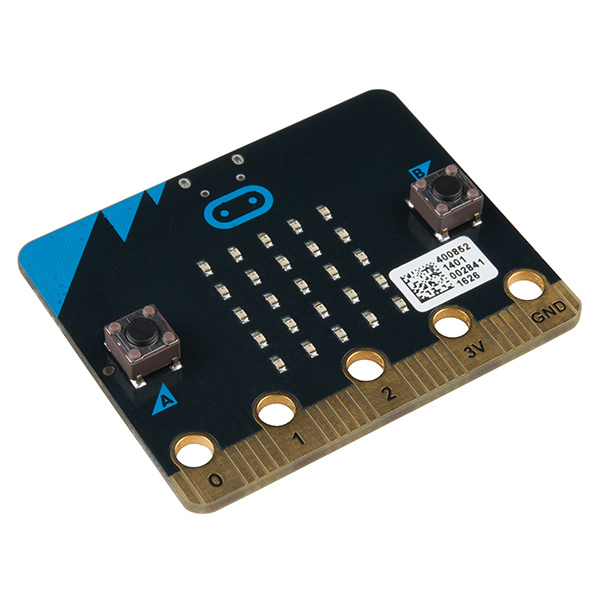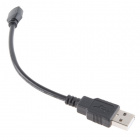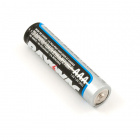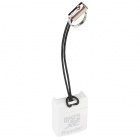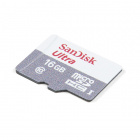micro:climate Kit Experiment Guide
Introduction to the Micro:Climate Kit
We have seen a huge amount of excitement from hobbyists, students and scientists around building a DIY weather station to track what is going on around us on Planet Earth on a daily basis.
We have seen just as much excitement around the BBC's newly released micro:bit, which made its debut in the United Kingdom and is now available in the United States through SparkFun.
And then it dawned on us...why not combine the two? So, here it is: a weather station kit that is built on top of the inexpensive, easy-to-use micro:bit and Microsoft MakeCode. We have also written seven experiments that walk you through how to use each and every component of the kit and how to use them with the micro:bit and Microsoft MakeCode. For more information about the kit, check out the videos below.
What's Included in the Kit?
| micro:climate Kit SKU | Revision History |
|---|---|
| KIT-16274 | - Minor revision on the weather:bit with Qwiic connector and surface mount edge connector. - Rain gauge in the weather meter has a bubble level and deeper reservoir for rain. |
| KIT-14217 | Switch to 2xAAA battery holder with a built-in switch. |
| KIT-15301 | Initial release. |
Below is all the parts included in the SparkFun micro:climate kit.
The kit comes with everything you need to build a fully featured weather station for the micro:bit. All you need to supply is, well, the micro:bit!
micro:bit Board
DEV-14208The kit includes the following parts:
- 1x - SparkFun weather:bit — The carrier board for the micro:bit and the central component to building a weather station
- 1x - Weather Meter —Wind speed, direction and rain gauge that connects to the SparkFun weather:bit
- 1x - SparkFun Soil Moisture Sensor — A simple probe for measuring soil moisture
- 1x - Waterproof Temperature Sensor — Waterproof temperature sensor with a long wire
- 1x - micro:bit Battery Holder --- 2xAAA (JST-PH) — Battery pack with a switch
- 1x - SparkFun OpenLog — A small widget that logs any data sent to it over a serial connection to a microSD card
- 1x - 10-Pack of M/M 12" Jumper Wires — Jumper wires for connecting things
- 1x - SparkFun Screwdriver — Great for tightening screws and screw terminals
- 1x micro:bit
- 1x Micro-B USB Cable
- 1x MicroSD Card
- 1x MicroSD USB Card Reader
- 2x AAA Batteries
750 mAh Alkaline Battery - AAA
PRT-09274microSD USB Reader
COM-13004micro:bit Board
DEV-14208microSD Card - 16GB (Class 10)
COM-15051How to Use This Guide
Please note that this guide is designed to get you started with the weather:bit board and the SparkFun micro:climate kit in a simple, straightforward way. We demonstrate each component's functionality and the corresponding code to make it work.
While you explore this guide, we urge you to take your time and tinker with the sensors, code and ideas shared to build something tailored to your application. Our goal is to get you enough information and know-how to make you dangerous and then release you into the wild, weather station in hand, to do whatever you do with a weather station.
Be sure to share your projects with us via Twitter or Facebook! We are excited to see you get creative and Start Something!
Suggested Reading
Before continuing with this guide, we recommend you be somewhat familiar with the concepts in the following tutorials:
What is a Circuit?
Getting Started with the micro:bit
Open Source!
All of our experiments and guides are licensed under the Creative Commons Attribution Share-Alike 4.0 Unported License. Feel free to remix and reuse our work. But please, share the love and give us attribution for our hard work!
To view a copy of this license visit this link, or write: Creative Commons, 171 Second Street, Suite 300, San Francisco, CA 94105, USA.
